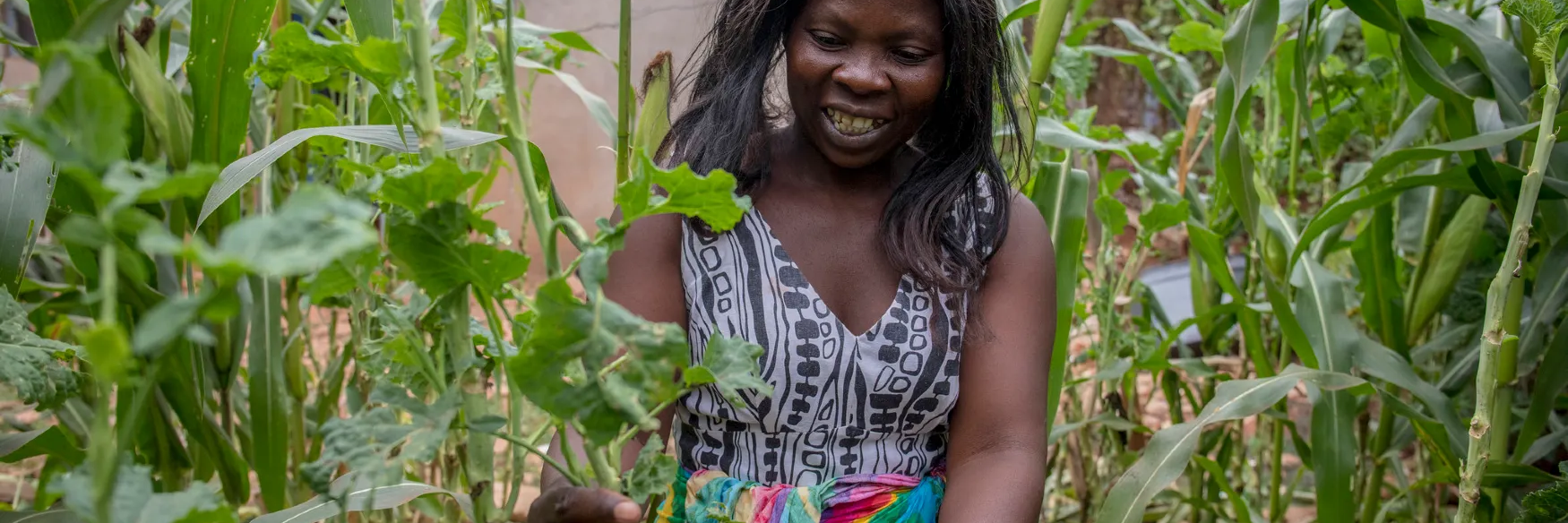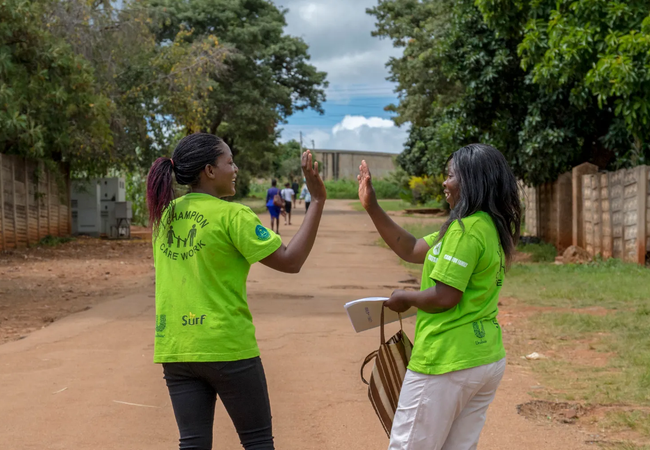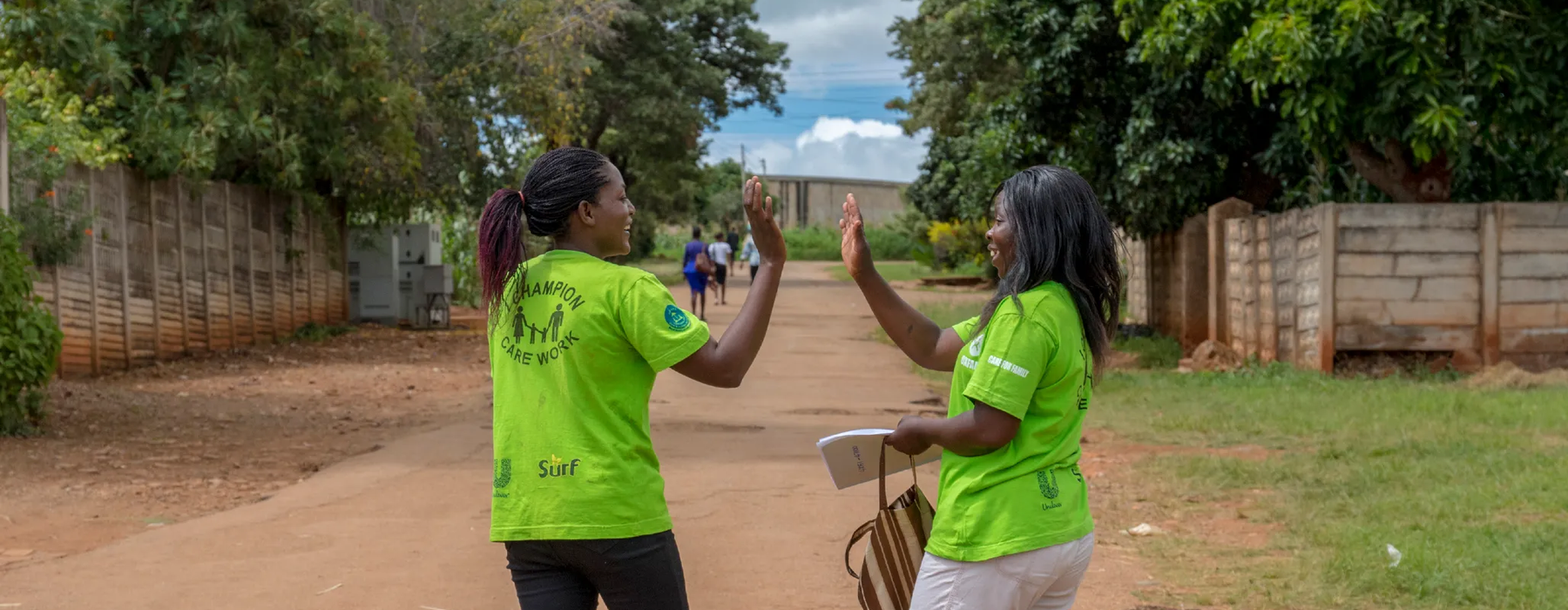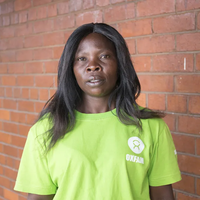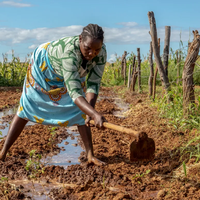It’s a culture that's always been there. This is the culture we are trying to change.”
Shylet is a local Oxfam WE-Care champion in Zimbabwe.
How one initiative helped women transform attitudes in their community
Traditional attitudes and unfair expectations in Shylet’s community meant housework was the women’s responsibility. Now she’s changing the culture and teaching families to help each other.
It has always been our culture. It has always been there. This is the culture we are trying to change. We should help each other as a family to do chores around the house. Fathers fetching water. Boys cooking, doing the dishes and sweeping the house. Same as the girls.
I go around the neighbourhood teaching parents about good hygiene. The importance of water, helping each other with house chores– fathers, mothers, children – as a family. Ensuring there is no task that is specifically targeted at boys, girls, the father or the mother. Household chores should be carried out by everyone at home.
Not every family understands it. But some of the families that we taught are currently doing it. They have embraced the training.
A portrait of care champion Shylet in Hatcliffe, Harare, Zimbabwe.
Oxfam's WE-Care programme
Women’s unpaid and paid work is undervalued. Women spend up to two thirds of their weekly working hours on unpaid care and housework, limiting their ability to participate in political, economic, cultural and social life. WE-Care is an Oxfam initiative helping a generation of women to change attitudes in their communities. And a generation of young men are growing up respecting women and the vital role they play in society.
Local WE-Care champions like Shylet (pictured) help ensure that overcoming inequality and empowering women are at the heart of Oxfam's work by lobbying for better infrastructure (for example for improved access to water) and by training and communicating with families about sharing responsibilities in the home more equally.
[Before] I didn’t even attempt it because I didn’t know how to bring it up. I didn’t know how to go about it. Because we lived by our culture. I would just endure the hardships. I only did it after I received training from Oxfam, on how I would present this to my family – to my husband and my children. The way I see it, it is good because everyone will be helping each other and we will be happy. Whilst one person is sweeping, the other is mopping, the other is cooking, and one is doing the dishes.
Initially, my husband didn’t understand that he could also go to the borehole. But he later on understood that we could actually help each other. Because he saw how much of a burden it was. He understood that he could help me out. Now he is able to go to the borehole and help with other chores.
Abigail and her family took part in the WE-Care initiative in early 2020. Photo: Cynthia Matonhodze/Oxfam
My husband has changed. He is now more helpful around the house.”
Abigail and her family have taken part in Oxfam's WE-Care initiative.
2.2 billion people do not have access to clean water at home.
Every day, more than 800 children under 5 die from diarrhoea caused by dirty water.
2.3 billion people lack access to basic facilities like toilets.
Shylet is a local Oxfam WE-Care champion in Hatcliffe, in Harare, Zimbabwe. Photo: Cynthia Matonhodze/Oxfam
